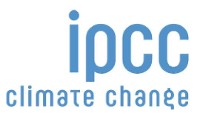ENE and the IPCC
The long tradition of ENE scientists' contributions to IPCC reports includes the Second, Third and and Fourth Assessment Reports, as well as the Special Reports on Emissions Scenarios (SRES, 2000), Carbon Dioxide Capture and Storage (SRCCS, 2005), and Renewable Energy Sources and Climate Change Mitigation (SRREN, 2011).
Currently a number of ENE scientists are involved in IPCCs 5th assessment Report. The IPCC's 5th assesment report is the most comprehensive state-of-the-climate effort yet, with greater emphasis on assessing the socio-economic aspects of climate change and implications for sustainable development, risk management and the framing of a response through both adaptation and mitigation. The Energy Program has a major role in preparing the IPCC Fifth Assessment Report (AR5), including the development of Representative Concentration Pathways (RCPs) and Shared Socioeconomic Pathways (SSPs).
The RCPs are a new generation of future climate scenarios with updated environmental observations and featuring consistent, spatially explicit emissions. ENE has played a central role in shaping the RCP development process within the energy modeling community. It has also developed one of the four new RCPs that will form the analytical background for the IPCC AR5, to be released in 2013.
FAST FACTS
- AR5 is the most comprehensive assessment of climate-related research yet undertaken.
- AR5 will use new emissions and energy scenarios, with IIASA playing a leading role in developing them.
- ENE plays a coordinating role, shaping the global development process and ensuring the efforts within IIASA are consistent.
The SSPs are a new generation of future socio-economic-technological scenarios with updated economic data, population projection and technology pathways. Within IIASA, the World Population and Ecosystem Services and Management programs are also closely involved in quantifying these projections. As with the RCPs, ENE plays a central role in shaping the SSP development process within the energy modeling community.
Many of the research activities that ENE is involved in will also provide input in to the IPCC AR5.
In addition to providing research input, ENE scientists are lead authors for chapters 6 and 7 of the Working Group III report.

CONTACT DETAILS
Program Director and Principal Research Scholar Energy, Climate, and Environment Program
Principal Research Scholar Integrated Assessment and Climate Change Research Group - Energy, Climate, and Environment Program
Principal Research Scholar Pollution Management Research Group - Energy, Climate, and Environment Program
Principal Research Scholar Sustainable Service Systems Research Group - Energy, Climate, and Environment Program


